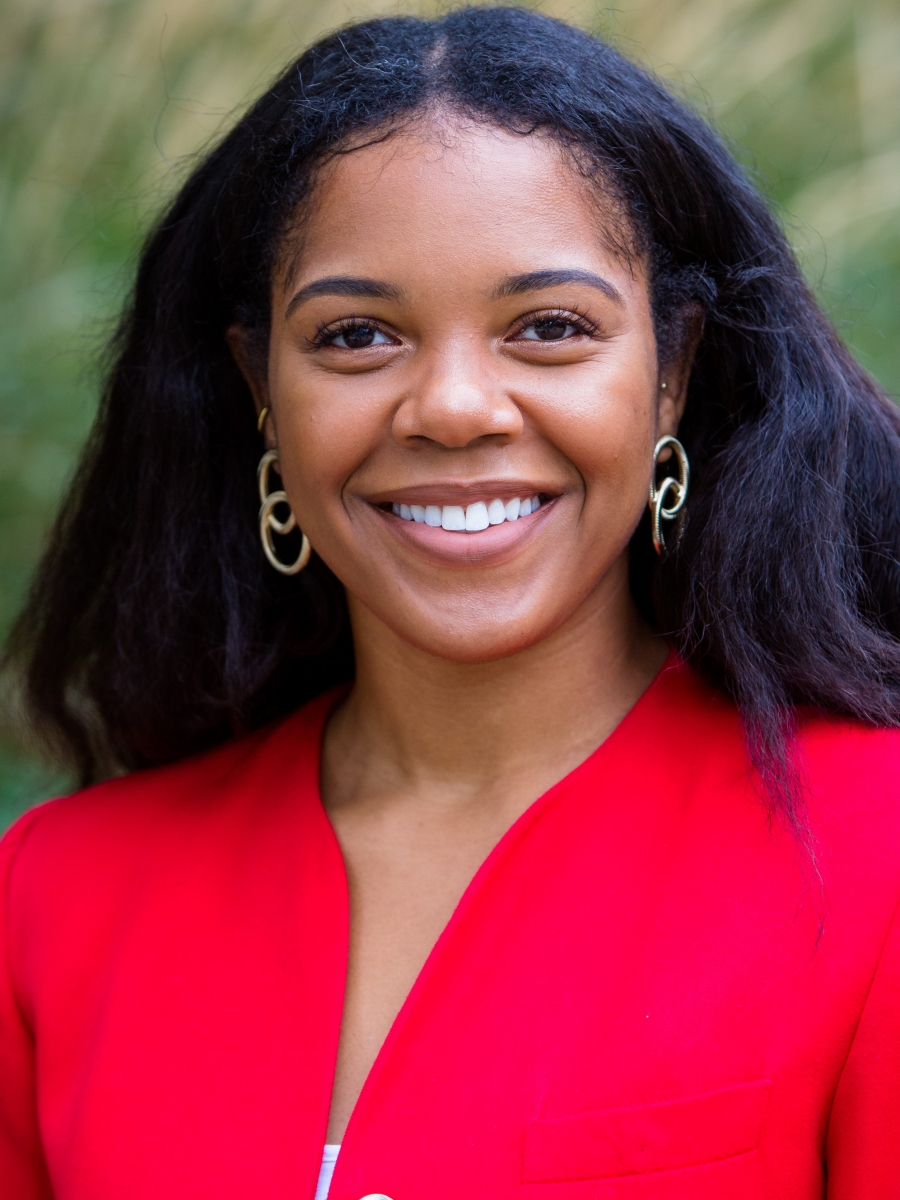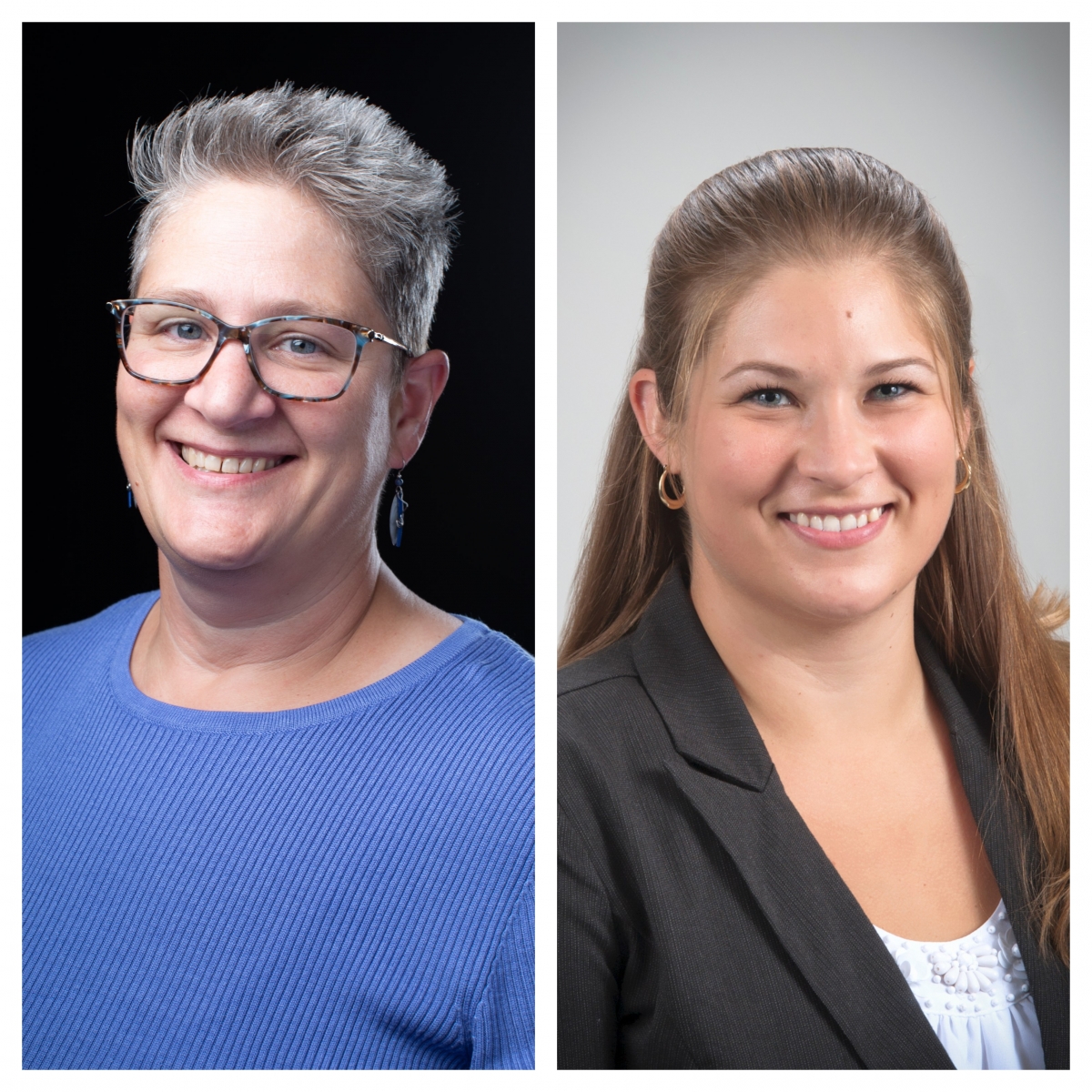This past summer, the Reich College of Education (RCOE) funded ten projects to support faculty and staff on research and creative projects through the Summer Scholarship Support Program. The purpose of the program is to provide support for the development of projects that implement elements of the RCOE Strategic Plan. Projects focused on the refinement of existing research or the creation of new research projects, development and refinement of instructional practices and strategies, engagement in policy development, and/or development of innovative professional development opportunities for faculty, staff, or students. The awards were limited to $1000.00 per project.
For the December, January, and March RCOE Faculty and Staff meetings, recipients of the funds will present their projects. On December 1, 2021, the following projects will be featured:
Black at App State: Exploring Identity

Dr. Ashley Carpenter, assistant professor in the Department of Leadership and Educational Studies, will present her project entitled “Black at App State: Exploring Identity.”
The project examined the following:
- how 15 Appalachian State University Black undergraduate and graduate students experienced and made meaning of major contemporary racial events and issues in U.S. society and
- how they drew connections to their own Black identity and App State environment.
“Research demonstrates that societal racism and oppression are not only mirrored in the university environment but are deeply felt by Black students who must navigate anti-Black racial realities in both their campus and broader societal contexts,” explained Carpenter.
This research was intentional in examining the intersectional diversity of the Black community at App State. Through student interviews, Carpenter garnered best practices in recruiting Black students to rural predominantly white institutions. Furthermore, by utilizing students' voices, Carpenter was able to also unpack some of the positive and negative experiences of Black students at App State and the Boone area.
“This information was helpful as it provided assessment insight on particular campus initiatives, personnel, campus leaders, and offices who have hindered or helped their retention at the institution,” said Carpenter.
“Unfortunately, many Black App State students included in the study did not feel like they were part of the campus culture (based on class status, racial identity, and college-generation status),” she continued. “In unpacking a sense of belonging from a lens of structural racism, I hope to use this knowledge to work with the Black Graduate Student Association (BGSA) and Black Student Association (BSA) to find best practices to ensure they are welcome and celebrated on campus.”
For the next steps in her project, Carpenter aims “to further concretize [the Black at App State] demands,” which included mandatory bias training, increase in Black and brown representation, exit interviews from students, faculty, and staff of color, and a comprehensive report regarding diversity, equity, and inclusion.
“Facilitating intergroup dialogues will create spaces for co-inquiry, consciousness-raising regarding social inequalities, conflict transformation, and civic engagement for social change,” noted Carpenter. “As it is crucial for there to be spaces for RCOE leadership to engage in conversations regarding inclusion, the voices of Black students need to be highlighted and valued.”
Carpenter presented her findings information at the Association for the Study of Higher Education conference in San Juan, Puerto Rico, earlier in November.
“Thank you for this award as it has helped explore and support a marginalized community on our campus,” said Carpenter.
Carpenter's scholarly research focuses on multicultural student development, institutional research, college access, and equity, diversity and inclusion, and identity development for marginalized communities.
Safe, Seen, and Stretched in the Classroom: The Remarkable Ways Teachers Shape Students’ Lives

Dr. Julie Hasson, assistant professor in the Department of Leadership and Educational Studies, will present her project entitled “Safe, Seen, and Stretched in the Classroom: The Remarkable Ways Teachers Shape Students’ Lives.”
The project is related to Hasson’s forthcoming book of the same name.
“The book is grounded in a multi-year, qualitative study which explored teacher impact through the narratives of former students,” said Hasson.
Over 300 stories were collected and analyzed, which will serve to “help educators understand the impact of their work” as well as to “help educators develop strategies for making a more consistent impact on their students.”
“A teacher's impact is rooted in how the teacher connects with students and what the teacher expects of students,” noted Hasson.
The project is aligned with Strategic Directions One and Three, “as the book contains strategies teachers can use to build strong relationships and positive classroom cultures:
- Strong student-teacher relationships lead to improved academic, social, and emotional outcomes.
- Beginning teachers understand the importance of relationships but may lack the strategies and skills to improve them, especially with their most challenging students.
- The skills and strategies revealed in the book can be useful in professional development within a learning network or as an offering to partner districts seeking new ways to improve student outcomes.”
Hasson has presented the findings detailed in the book at several conferences, including the National Association of Elementary School Principals Conference, the Association for Middle-Level Education Conference, and the Association of Supervision and Curriculum Development Leadership Symposium. She also shared the project as the keynote for the National Association of Professional Development Schools. Hasson has also been invited to deliver professional development related to the project findings to school districts around the country.
Hasson plans to continue offering professional development related to the findings detailed in the book in school districts, including recording informational sessions, which teachers can access online.
Hasson's research interests are student-teacher relationships, classroom culture, and principal-teacher relationships.
Stories from the Classroom: What Student Teaching During COVID-19 Looks Like

Both in the Department of Curriculum and Instruction, Dr. Ashley Whitehead, assistant professor, and Dr. Christina Tschida, associate professor, will present their project entitled “Stories from the Classroom: What Student Teaching During COVID-19 Looks Like.”
The project was designed to help understand the experiences and impact of the pandemic on current student teachers. “Understanding the challenges and successes of this group may help adapt teacher education courses or programs to better support students’ growth as resilient, flexible, and well-prepared teachers,” noted Whitehead.
Whitehead outlined how the project directly meets the RCOE Strategic Plan:
- “First, this research involves interviewing preservice teachers about their experiences during course work and student teaching (Goal 1.2.3) as a way to evaluate our program.
- Additionally, it has brought two researchers from math and social studies education together to collaborate within the college and department (Goal 2.1.1.2).
- Finally, implications of this work include the importance of educating preservice teachers on the use of instructional technologies (Goal 6.3.1) to better prepare them for future disruptions to teaching.”
In March 2020, App State shifted all classes to online due to COVID-19, which also included internships and field experiences. “While research has shown the importance of field experiences, little is known about the effect of virtual field experiences and how COVID-19 has impacted preservice teachers’ preparedness to teach,” said Tschida.
“Examining the impact of restrictions and policies placed on our preservice teachers and the elementary schools during COVID-19 is important in understanding how prepared they are for student teaching and entering the classroom,” added Tschida.
Data are continuing to be collected from Fall 2021 and Spring 2022 student teachers. “We are also following our students out into their first teaching position and talking with them about their experiences and perceived preparedness to teach,” noted Tschida.
“We plan to interview them throughout their first year in order to understand their developing teacher identity and the ways that learning to teach during COVID-19 impacted their preparedness and sense of efficacy in their teaching,” added Whitehead.
The RCOE Summer 2021 Scholarship Grant allowed Whitehead and Tschida to further their work around the impact of learning to teach during the time of COVID-19. “We were able to: write two proposals for national conferences, organize and analyze data collected, and plan for more data collection,” said Whitehead.
Whitehead's primary research interest revolves around the preparation of preservice teachers with a focus on the development of preservice elementary teachers' mathematical knowledge for teaching.
Tschida’s research interests are clinical practice reform through the use of co-teaching and coaching, improving teacher education through critical, equity-centered, anti-racist pedagogies, use of video capture and annotation technology to improve teacher reflection, and quality online learning and teaching.

